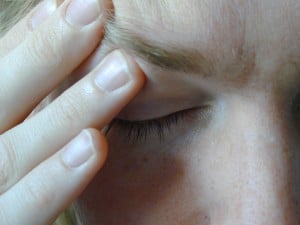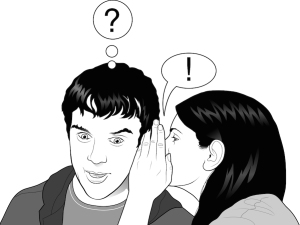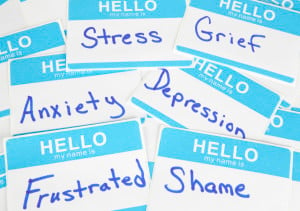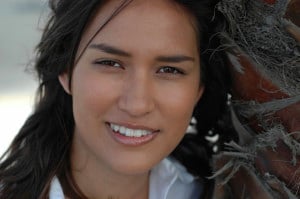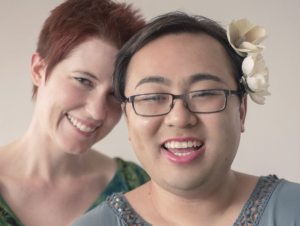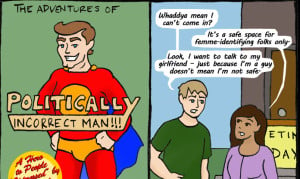
Source: Acloche
Three years ago, my husband Kris and I took our final step toward a longtime goal of embracing a location-independent lifestyle. We sold most of our stuff, withdrew our daughters from elementary school, began unschooling, and traded in our landlocked life in the state of Georgia for a test-run at our dream life. The plan was to spend at least four months on the island of Jamaica, where Kris and I were born and spent most of our childhoods.
A few weeks into our time on the island, we began interviewing tutors to help us make the transition from daily school structure into self-guided learning with adult assistance. As new unschoolers, we were still tied to the idea that our daughters needed a professional educator to help them learn things.
One of the women that we interviewed was a highly trained, well-traveled spunky woman with a perfect shiny black afro dotted with sprinkles of gray. As we sat on her veranda, admiring her plants and soaking in her beautiful stories, she told us that she loved that we had chosen an unconventional lifestyle as parents of young children, and she shared how she and her husband had also prioritized frequent travel with their children, when they were younger, as well.
I thought we’d found our Fairy Godteacher – that is, until she dropped the L-bomb.
Toward the end of our interview, when we were exchanging hugs and finishing up our freshly-squeezed lemonade, she tilted her perfectly-afro’d head and said, in her beautiful sing-song island-woman accent, “Not to worry, I help turn girls into wonderful wives and perfect ladies.”
Ladies? Aw, hell nah!
We promptly handed in our lemonade glasses and hauled collective ass. Why? Because Kris and I have no desire to turn our daughters into anything but themselves — ladies being at the top of that Hell Nah! List.
For me, terms like lady or ladylike are right in line with equally absurd terms like acting Black, or any of the other terms that lump behavior onto a particular group of people in an effort to reinforce dominant society’s assertion of what is considered desirable and acceptable social protocol.
As an adult woman, I don’t like the term lady, but I leave it up to each adult to decide what it means for them, and I make room for the varied nuances of the term, based on who I’m speaking to and what part of the world I’m in.
I am, however, decidedly against the term “ladylike” when it comes to my young daughters (ages 10 and 8), as it is laden with various historical and social contexts that don’t sit well with me as a parent.
I’ll spare you my entire Hell Nah! List on my firm rejection of certain cultural and social contexts, but I will share my four top reasons for steering clear of labels and social graces when it comes to my daughters, along with alternatives to the ladylike label.
1. Remnants of Racism and Classism Ring Out
My primary reason for rejecting the lady label is that I believe it to be a form of control.
As a Black woman unapologetic about viewing American society today through a lens that includes the reality of its racist foundation, I reject any ideologies that mirror the slave mentality of controlling a woman based on someone’s analysis of her character.
My ancestors could never have been ladies because widely accepted analysis of their character was that genetically, they were nothing more than big-bootied, oversexed (another absurd term, as it seeks to appropriate an acceptable amount of sexual desire for women) property of their male masters and could therefore be used just as any other owned material goods could be used without legal or any other form of societal consequence to her owner/rapist/pimp.
My ancestors were not granted the privilege of humanity, much less manners or money — the two silent M’s in “lady” — and could only aspire, post-slavery, to become like their past masters’ wives, skilled in the ways of all things that made their men feel comfortable, respected, prioritized, and basically in affirmation of hegemonic masculinity.
I’ll pass.
The Alternative View
Consider that money (or the perception of having it) and manners doesn’t make one woman better than another.
Human beings — regardless of race, gender, or financial bracket — have the right to define and express themselves as they see fit.
Using one (rather antiquated) picture of a woman as the standard for all women is irrational, oppressive, and elitist.
Let’s meet each woman right where she is, instead of where it may seem most convenient or comfortable for her to be.
2. Connotations of Curtseys and Coyness Come Up
Most people will agree that the connotation of ladylikeness carries a tone of a woman who is virtuous and checklist appropriate in how she dresses and behaves.
Ladies don’t wear cut-off denim shorts, nor do they curse in public. They don’t laugh too loudly, and they don’t cause friction by opposing someone’s opinion, and they generally sit still and look pretty.
If demure and generally quiet is simply part of a woman’s natural way, then I take no issue. But what is the likelihood that every girl or woman is naturally that way? And what happens to the confidence and courage of the girl who prefers long pants, short hair, and spirited discourse over dresses, flowing locks, and passive nods during dialogue?
The Alternative View
Instead of plastering all women with one set of personality traits, let’s make room for each woman to be as bold and expressive as she needs to be.
Just as a man isn’t less of a man because he’s quiet and prefers not to curse–wait, society does place behavioral demands on men as well, and that is also problematic, as every man has the right to be himself and act in ways that align with his personality and his spirit, instead of the notion of cater to the oppressive notion of whatever manliness is supposed to be.
3. Sexist Suitors Smile at Such Terms
In my mind, ladies are designed not just for society in general, but for men in particular.
A woman doesn’t inherently need another woman to be coy, quiet, and moneyed. The popular American idiom of the ideal woman being a lady on your arm and a freak between the sheets sings the praises of the lucky suitor who snagged the perfect woman.
That perfection is evidenced by her knowing how to be demure and highly compliant in public settings, and equally versed in the art of getting all “Say my name, Bitch!” when it’s time to satisfy her partner’s needs.
All of that not because that’s what she wants, but because that’s what ladies do for their lovers — though I doubt a real lady would have a lover; she’d have a proper husband.
The Alternative View
If you’re a woman reading this, I challenge you to take an honest look at the ways you might be unconsciously playing into the lady role.
If you’re out on a date, for example, and you opt for a salad over a full meal because you don’t want your date to see you scarf down a turkey burger with sweet potato fries, ask yourself what that’s really about.
Or, if you practice taming the way you laugh so that it’s not viewed as too loud, too throaty, or too whatever, ask yourself what that’s really about.
I offer these points of examination because I am of the belief that women can also perpetuate sexist notions by playing into certain social rules.
Being honest, not just about what we do in public, but why we do it, offers a great opportunity to empower ourselves by choosing based on our preferences, and not the fear of someone else’s reaction.
4. Ladies Forgo the Luxury of Real Learning
When our potentially perfect tutor beamed about her wives-and-ladies reputation, I was reminded of one of our primary reasons for our ongoing discomfort with the traditional school setting.
Through my lens, school can become an emotionally restrictive environment where one person’s idea of right and good dominated, and the person being taught was treated not like a person, but like a bucket lined with mirrors on the outside — a mirrored bucket in which information is placed. And that information looks like the person placing the information with no regard for the desires or design of the person in which the information is being placed.
I imagine that ladies wouldn’t want to be burdened with the task of addressing the way historical data is widely omitted from standard American grade school curricula because it’s messy and complicated.
Ladies, in my mind, wouldn’t find it appropriate to talk about Christopher Columbus’s “discoveries” leading to mass murders, enslavement, and the stealing of populated islands.
Those topics, let society tell it, are best left to men and the ill-mannered women who lack the practice in the social graces that make for easy conversation, and I can only hope that my daughters would have no issue looking right past social graces when it comes to their appetite for learning.
The Alternative View
Children need to be able to ask questions, and they deserve honest answers.
By design, school has already decided what is important for children to learn, but those pre-determined topics should not be the limit, only the starting point. I believe that any adult who wants to be an active part of a child’s life has a responsibility to encourage a child to question things.
Famed human rights activist and reggae musician Bob Marley urged listeners of his 1979 record, Babylon System, to “tell the children the truth.”
I cosign on Bob’s assertion — not just for girls, but for all children.
The ladylike labeling doesn’t begin in adulthood, it is nurtured early in a child’s life, and reinforced in the home and at school.
Education can either act as a barrier or as a bridge: If we stop compartmentalizing dialogue and stop being afraid of what children may ask us, we may just begin to shift the tide from books and classes that intentionally omit the contributions and participation of “rabble-rousing women,” and instead simply tell the stories the way they happened. Imagine that.
***
I want for my daughters the same thing I want for myself: radical self-expression.
I want them to be confident in the exploration and expression of all the lifestyle choices that feel most aligned with who they inherently are.
If they grow up feeling connected to the term lady, I will be happy because it will be by choice, not by covert or overt pushes from me or from society.
I don’t think that social graces should be rejected as oppressive, but they should be examined. And for some women, those graces and labels serve as cautions against authentic self-expression through style of dress, verbal communication, and general behavior.
Perhaps we begin with governing ourselves by our own sense of comfort and paying attention to our girls’ natural tendencies.
Just as we’re quick to make girls aware of what is considered socially and culturally appropriate for where they are, we should also help them navigate those appropriations alongside their own unique needs, tendencies, and forms of expression.
If we could be so present and so committed, we may stop needing girls to grow up to become ladies, and instead simply grow up to become themselves.
[do_widget id=”text-101″]
Akilah S. Richards is a Contributing Writer for Everyday Feminism. She is a six-time author, digital content writer, and lifestyle coach who writes passionately about self-expression, womanhood, modern feminism, location independence and the unschooling lifestyle. Connect with Akilah on Instagram, Tumblr, or her #radicalselfie e-home, radicalselfie.com. Read her articles.
Search our 3000+ articles!
Read our articles about:
Our online racial justice training
Used by hundreds of universities, non-profits, and businesses.
Click to learn more
Most Read Articles
- « Previous
- 1
- …
- 30
- 31
- 32





